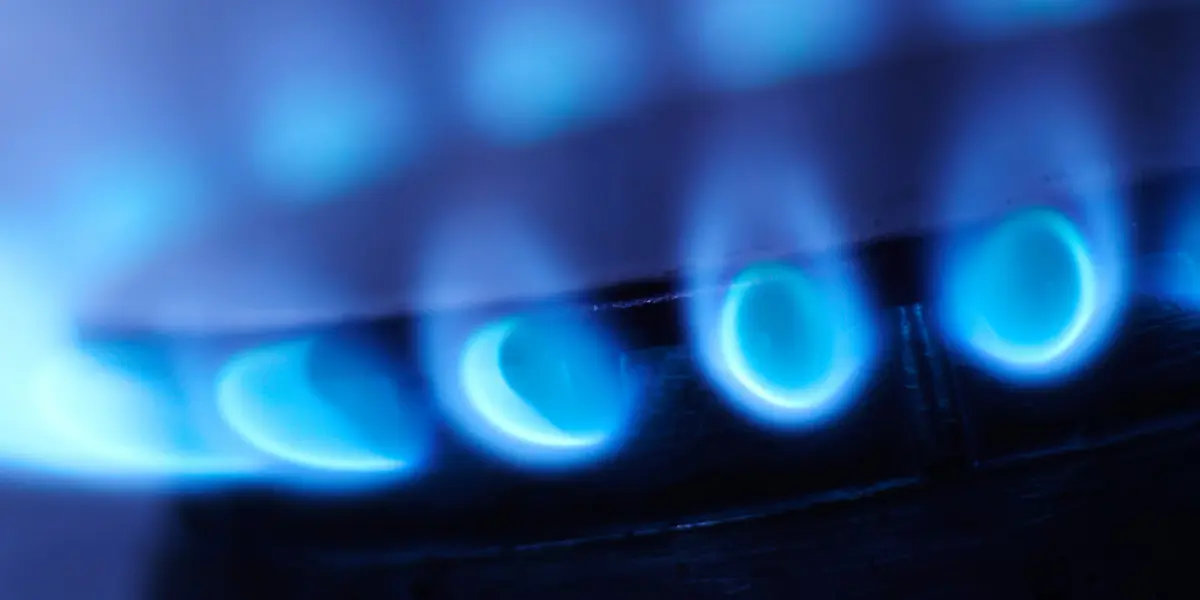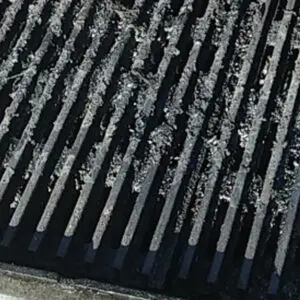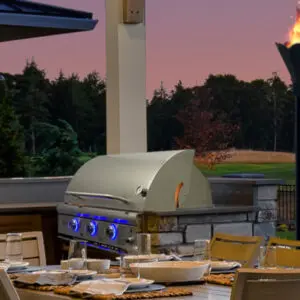
The Difference Between Propane And Natural Gas
Natural gas and propane gas exhibit several distinctions, especially when it comes to their use in gas grills. By definition, natural gas primarily consists of methane, whereas propane is derived from both petroleum and natural gas sources.
Distribution Methods
When it comes to the distribution methods for grilling, propane is typically stored in portable tanks, making it a convenient choice for grilling enthusiasts who prefer mobility and flexibility. In contrast, natural gas grills are usually connected to a fixed gas line through underground utility pipes. This setup provides a continuous and uninterrupted supply of gas but lacks the portability of propane tanks.
Fume Dispersion
Efficient fume dispersion is a critical aspect of safe and responsible gas use, particularly in environments like outdoor kitchens or enclosed spaces. Both natural gas and propane grills produce carbon monoxide fumes as a byproduct of combustion. However, their behavior differs significantly. Natural gas is lighter than air, causing its fumes to rise and disperse into the atmosphere, minimizing the risk of lingering fumes around the grill. On the other hand, propane fumes are heavier than air, which necessitates more vigilant ventilation in the grilling area to prevent the accumulation of potentially hazardous fumes. This becomes an even more important consideration when you are dealing with a built-in grill installation. The proper amount and proper placement of vents are needed to create a safe grilling area.
When choosing between these gases for your grill, it’s crucial to consider the specific requirements and limitations of each.
For instance, if you have access to a natural gas line close to your outdoor entertainment area, a natural gas grill may be the more convenient and cost-effective choice, as it eliminates the need for frequent propane tank refills. However, if you prefer the flexibility of grilling in various locations or have no access to a natural gas line, a propane grill with its portable tanks may be the better option.
A very important thing to keep in mind is that you can’t use a natural gas grill with a propane grill, and vice versa, because gas orifices are sized differently to accommodate the different pressures of each gas. Therefore, selecting the right type of grill and fuel source is essential to ensure safe and efficient grilling experiences.
![]()
Natural Gas
Pros
- Natural gas is the same fuel that is run through many homes so it is like any other utility. You do not have to worry about running out of fuel or needing to purchase a new or refill a tank.
- Natural Gas is generally cheaper than propane gas
- Most natural gas model grills come with a kit that makes hooking the grill to the gas line quick and easy
- Natural gas is also one of the most eco-friendly fuel sources on the market, and it’ll safely float out of your outdoor kitchen in the event of a leak because it’s lighter than air. For built-in installations, proper ventilation and venting systems should be incorporated to ensure that gas fumes are effectively and safely allowed to escape enclosures.
- Natural gas grills can operate even when you lose electricity
Cons
- If you do not already have a natural gas line installed it can be expensive and requires a professional.
- Where you place your grill is determined by where the natural gas line hook-up is located
![]()
Liquid Propane
Pros
- Propane is the ideal choice if you want the option to move your grill around your outdoor area. Since you are not limited to where the gas hook-up is located you can move the grill to from the backyard to the driveway, under the porch during rain or out by the pool.
- Propane gas grills can operate even when you lose electricity
Cons
- You have to refill the propane tank. Nobody wants to run out of gas while preparing food for a party so you will either need to know approximately how much propane you have left or have a back-up tank ready to swap out. Luckily, swapping out tanks is quick and easy.
- Propane gas costs more than natural gas



